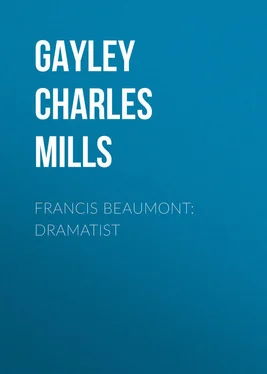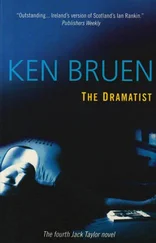Charles Gayley - Francis Beaumont - Dramatist
Здесь есть возможность читать онлайн «Charles Gayley - Francis Beaumont - Dramatist» — ознакомительный отрывок электронной книги совершенно бесплатно, а после прочтения отрывка купить полную версию. В некоторых случаях можно слушать аудио, скачать через торрент в формате fb2 и присутствует краткое содержание. Жанр: cinema_theatre, foreign_antique, foreign_prose, Биографии и Мемуары, на английском языке. Описание произведения, (предисловие) а так же отзывы посетителей доступны на портале библиотеки ЛибКат.
- Название:Francis Beaumont: Dramatist
- Автор:
- Жанр:
- Год:неизвестен
- ISBN:нет данных
- Рейтинг книги:5 / 5. Голосов: 1
-
Избранное:Добавить в избранное
- Отзывы:
-
Ваша оценка:
- 100
- 1
- 2
- 3
- 4
- 5
Francis Beaumont: Dramatist: краткое содержание, описание и аннотация
Предлагаем к чтению аннотацию, описание, краткое содержание или предисловие (зависит от того, что написал сам автор книги «Francis Beaumont: Dramatist»). Если вы не нашли необходимую информацию о книге — напишите в комментариях, мы постараемся отыскать её.
Francis Beaumont: Dramatist — читать онлайн ознакомительный отрывок
Ниже представлен текст книги, разбитый по страницам. Система сохранения места последней прочитанной страницы, позволяет с удобством читать онлайн бесплатно книгу «Francis Beaumont: Dramatist», без необходимости каждый раз заново искать на чём Вы остановились. Поставьте закладку, и сможете в любой момент перейти на страницу, на которой закончили чтение.
Интервал:
Закладка:
Charles Mills Gayley
Francis Beaumont: Dramatist A Portrait, with Some Account of His Circle, Elizabethan and Jacobean, And of His Association with John Fletcher
PREFACE
In this period of resurgent dramatic creativity when once more the literature of the stage enthralls the public and commands the publisher, it is but natural that playwright, play-lover, and scholar alike should turn with renewed and enlightened interest to the models afforded by our Elizabethan masters of the age of gold, to the circumstances of their production and the lives of their imperishable authors. Very close to Shakespeare stood Beaumont and Fletcher; but, though during the past three centuries books about Shakespeare have been as legion and studies of the "twin literary heroes" have run into the hundreds, to Fletcher as an individual but one book has been devoted, and to Beaumont but one.
A portrait of either Beaumont or Fletcher demands indeed as its counterpart, painted by the same brush and with alternating strokes, a portrait of his literary partner and friend. But in spirit and in favour the twain are distinct. In this book I have tried to present the poetic and compelling personality of Francis Beaumont not only as conjoined with, and distinguished from, the personality of Fletcher, but as seen against the background of historic antecedents and family connections and as tinged by the atmosphere of contemporary life, of social, literary, and theatrical environment. No doubt the picture has its imperfections, but the criticism of those who know will assist one whose only desire is to do Beaumont justice.
I take pleasure in expressing my indebtedness to the authorities of the Bodleian Library and the British Museum, to those of the National Portrait Gallery (especially Mr. J. D. Milner), to our own Librarian of the University of California, Mr. J. C. Rowell, for unfailing courtesy during the years in which this volume has been in preparation; to Mr. J. C. Schwab, Librarian of Yale University, for the loan of rare and indispensable sources of information, and to my colleague, Professor Rudolph Schevill, for reading proof-sheets and giving me many a scholarly suggestion. I deplore my inability to include among the illustrations carefully made by Emery Walker, of 16 Clifford's Inn, a copy of the portrait of Beaumont's friend, Elizabeth, Countess of Rutland, which hangs at Penshurst. On account of the recent attempt to destroy by fire that time-honored repository of heirlooms as precious to the realm as to the family of Sidney, the Lord de L'Isle and Dudley has found it necessary to close his house to the public.
Charles Mills Gayley.Berkeley, California,
December 15, 1913.
PART ONE
BEAUMONT'S LIFE, HIS ACQUAINTANCES, AND HIS CAREER AS POET AND DRAMATIST
CHAPTER I
THE CASTOR AND POLLUX OF ELIZABETHAN DRAMA
"Among those of our dramatists who either were contemporaries of Shakespeare or came after him, it would be impossible to name more than three to whom the predilection or the literary judgment of any period of our national life has attempted to assign an equal rank by his side. In the Argo of the Elizabethan drama – as it presents itself to the imagination of our own latter days – Shakespeare's is and must remain the commanding figure. Next to him sit the twin literary heroes, Beaumont and Fletcher, more or less vaguely supposed to be inseparable from one another in their works. The Herculean form of Jonson takes a somewhat disputed precedence among the other princes; the rest of these are, as a rule, but dimly distinguished." So, with just appreciation, our senior historian of the English drama, to-day, the scholarly Master of Peterhouse. Sir Adolphus Ward himself has, by availing of the inductive processes of the inventive and indefatigable Fleay and his successors in separative criticism, contributed not a little to a discrimination between the respective efforts of the "twin literary heroes" who sit next Jason; and who are "beyond dispute more attractive by the beauty of their creations than any and every one of Shakespeare's fellow-dramatists." But even he doubts whether "the most successful series of endeavours to distinguish Fletcher's hand from Beaumont's is likely to have the further result of enabling us to distinguish the mind of either from that of his friend." Just this endeavour to distinguish not only hand from hand, but mind from mind, is what I have had the temerity to attempt. And still not, by any means, a barefaced temerity, for my attempt at first was merely to fix anew the place of the joint-authors in the history of English comedy; and it has been but imperceptibly that the fascination of the younger of them, of Frank Beaumont, the personality of his mind as well as of his art, has so grown upon me as to compel me to set him before the world as he appears to me to be clearly visible.
In broad outline the figure of Beaumont has been, of course, manifest to the vision of poet-critics in the past. To none more palpably than to the latest of the melodious immortals of the Victorian strain. "If a distinction must be made," wrote Swinburne as early as 1875, "if a distinction must be made between the Dioscuri of English poetry, we must admit that Beaumont was the twin of heavenlier birth. Only as Pollux was on one side a demigod of diviner blood than Castor can it be said that on any side Beaumont was a poet of higher and purer genius than Fletcher; but so much must be allowed by all who have eyes and ears to discern in the fabric of their common work a distinction without a difference. Few things are stranger than the avowal of so great and exquisite a critic as Coleridge, that he could trace no faintest line of demarcation between the plays which we owe mainly to Beaumont and the plays which we owe solely to Fletcher. To others this line has always appeared in almost every case unmistakable. Were it as hard and broad as the line which marks off, for example, Shakespeare's part from Fletcher's in The Two Noble Kinsmen , the harmony would of course be lost which now informs every work of their common genius… In the plays which we know by evidence surer than the most trustworthy tradition to be the common work of Beaumont and Fletcher there is indeed no trace of such incongruous and incompatible admixture as leaves the greatest example of romantic tragedy … an unique instance of glorious imperfection, a hybrid of heavenly and other than heavenly breed, disproportioned and divine. But throughout these noblest of the works inscribed generally with the names of both dramatists we trace on every other page the touch of a surer hand, we hear at every turn the note of a deeper voice, than we can ever recognize in the work of Fletcher alone. Although the beloved friend of Jonson, and in the field of comedy his loving and studious disciple, yet in that tragic field where his freshest bays were gathered Beaumont was the worthiest and the closest follower of Shakespeare… The general style of his tragic or romantic verse is as simple and severe in its purity of note and regularity of outline as that of Fletcher's is by comparison lax, effusive, exuberant… In every one of the plays common to both, the real difficulty for a critic is not to trace the hand of Beaumont, but to detect the touch of Fletcher. Throughout the better part of every such play, and above all of their two masterpieces, Philaster and The Maid's Tragedy , it should be clear to the most sluggish or cursory of readers that he has not to do with the author of Valentinian [Fletcher] and The Double Marriage [Fletcher and Massinger]. In those admirable tragedies the style is looser, more fluid, more feminine… But in those tragic poems of which the dominant note is the note of Beaumont's genius a subtler chord of thought is sounded, a deeper key of emotion is touched, than ever was struck by Fletcher. The lighter genius is palpably subordinate to the stronger, and loyally submits itself to the impression of a loftier spirit. It is true that this distinction is never grave enough to produce a discord; it is also true that the plays in which the predominance of Beaumont's mind and style is generally perceptible make up altogether but a small section of the work that bears their names conjointly; but it is no less true that within this section the most precious part of that work is comprised."
Читать дальшеИнтервал:
Закладка:
Похожие книги на «Francis Beaumont: Dramatist»
Представляем Вашему вниманию похожие книги на «Francis Beaumont: Dramatist» списком для выбора. Мы отобрали схожую по названию и смыслу литературу в надежде предоставить читателям больше вариантов отыскать новые, интересные, ещё непрочитанные произведения.
Обсуждение, отзывы о книге «Francis Beaumont: Dramatist» и просто собственные мнения читателей. Оставьте ваши комментарии, напишите, что Вы думаете о произведении, его смысле или главных героях. Укажите что конкретно понравилось, а что нет, и почему Вы так считаете.












